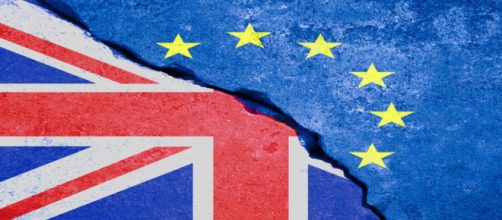The latest round of negotiations in the Brexit process have seen the European Union and the UK government falling out over products that were born in Europe and remain their specialties, with Parma ham and feta cheese and French cognac and Belgian sour lambic beers being calling out in particular. The EU brass want the UK to legislate these products to protect their international origins. They want foods and drinks that are European specialties to receive some kind of special status under the laws of the UK after Brexit.
The discussions have gotten awfully heated in the last couple of days, as Michel Barnier, the top Brexit negotiator for the EU, has called out the British government for playing “hide and seek” with its aims in the leaving process, and wants them to be more upfront about what they want from the eventual deal.
The UK and the EU also fell out over the Galileo satellite system, which the EU are currently developing to be used for both civil and military purposes and the UK leaders want access to, and that’s what led to the discussions about food and drink products.
What the EU really want with these new legislations on Europe’s specialty foods and drinks is to verify which of these products came from the proper sources, so that there aren’t any cheap, British-produced copycat versions of them. These foods and drinks will be promoted to a special position that will elevate them above the rest of the foods and drinks on sale in Britain in order to guarantee customers that they were made in the right countries.
As these negotiations continue, we could be losing these products – no more feta, no more cognac, no more Parma ham.
The EU want the UK to put ‘geographical indications’ on European-specialty products
The EU guys are hoping to get “geographical indications” put on food and drink products that are specialties to European countries so that UK buyers know which countries made the produce that they’re purchasing.
Barnier has said that this food and drink issue is one of the many things that definitely has to be sorted out by the time that a Brexit deal is finally decided on and the UK officially leaves the European Union. Top sources in the EU have indicated that this process of protecting the European-specialty foods in the UK has got to happen by the end of 2020.
Barnier also announced that the UK will be allowed a transition period of 21 months to make the necessary changes to their turnover of European-specialty food and drink produce. During a contentious process of negotiations over the trade disputes involved in Brexit in Brussels last week, a senior official within the EU noted that the distributions of foods and drinks with European origins in the UK has become a “difficult issue” in the talks. Sources within the EU have said that the foods of European origin being sold in the UK need “indefinite” protection following the 21-month transitional period that has been allowed.
The total number of the foods that EU want protected is over 3,000
We’re not just talking about Parma ham or cognac here.
The number of foods and drinks that the European Union want to have this proposed special status for their sale in the United Kingdom is in excess of 3,300. The UK itself has some foods protected with “geographical indications” for its international distribution, but since we’re a bit late to the game, we only have 83 types of food with GI status across the globe.
During these discussions, it has been suggested that the word “champagne” will not be allowed to be used for sparkling wine products that didn’t come directly from France. In fact, all French-produced champagne and other wines already have the protection that the EU want for their foods under the 1919 Treaty of Versailles.

